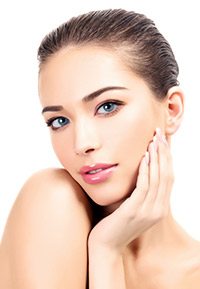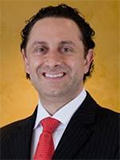
Congratulations! You’ve undergone rhinoplasty and are now on your way to a new you. Proper recovery is crucial to ensure optimal results and the healing process. Dr. Bitar, board-certified plastic surgeon has put together these do’s and don’t tips for a smooth recovery after a nose job.
While specific instructions will vary somewhat from patient to patient, you might expect your surgeon to give you the following list of dos and don’ts.
What To Do After Rhinoplasty
Do: Continue to Avoid Smoking
If you were a smoker before your surgery, odds are that your surgeon told you to give up the habit several weeks before your procedure.
Smoking can interfere with the safety of the surgery and can negatively affect the results. Nicotine slows down blood flow, which can make you more likely to scar. The drug also disrupts healing. Generally, surgeons advise avoiding smoking for at least another two weeks after your rhinoplasty. By the time two weeks have passed after your procedure, you’ll have quit cigarettes for at least one full month, meaning you may not even want to resume the habit again. If you are having trouble coping with not smoking after your surgery, your surgeon can offer guidance and help.
Do: Relax
One of the best things to do in the first weeks after rhinoplasty is to simply relax. You don’t have to be bedridden, but you also shouldn’t feel that you have to run about and get a lot of things done.
Use the recovery period to catch up on a few movies, TV shows or books. Feel free to take short walks as you recover, to help keep your blood flowing and to help reduce the chance of constipation.
Do: Eat Well
While you don’t have to stick to a soft food diet, you may find that you prefer to avoid foods that require a good amount of chewing, such as steaks and other types of meat, especially within the first few days of your surgery. Go for soft and easily chewable foods to avoid putting strain on your jaw and nasal area. Light foods like soups, yogurts, and soft fruits, are easy to eat and packed with essential vitamins and nutrients needed after surgery. You also want to limit your salt intake. Excessive salt can contribute to additional swelling which we want to avoid as much as possible. Spicy foods are another no-go as they can potentially irritate your nasal passages.
Do: Ice
Cold packs play a crucial role in your recovery process because they help manage pain, discomfort, inflammation, and swelling. To apply, you must first wrap the cold compress in a towel or thin cloth. Then, place it on the bridge of your nose for 15-20 minutes every 1-2 hours. This routine is especially important during the first 48 hours post-surgery.
Do: Keep the Head Elevated
Swelling is par for the course after rhinoplasty. While you can’t avoid it, you can do something that will minimize it or keep it from becoming worse.
One of those things is to keep your head elevated at all times. When relaxing, try sitting in a recliner that’s set at a 45 degree angle. Place several pillows on your bed to keep your head propped up during sleeping. You’ll also want to sleep on your back, so that you don’t put any pressure on your healing nose.
What Not To Do After Rhinoplasty
Don’t: Blow Your Nose
Blowing your nose seems like an obvious “don’t” after your rhinoplasty, but with a cast, and alot going on underneath it, you may be tempted to do so. Blowing your nose forcefully could seriously harm the integrity of your newly shaped nasal structures, resulting in increased inflammation, improper healing, and even compromised results. If you get the urge to blow your nose, don’t. We recommend letting fluids come out at their own pace and not tampering with the healing process.
Don’t: Go Tanning
We get a lot of questions like “Can I tan after rhinoplasty?” or “When can I go to the beach after rhinoplasty?”
Tanning or spending a lot of time in the sun without sunscreen is a bad idea at any time.
It’s particularly bad when your nose is healing after surgery. The skin around your nose will be particularly tender and delicate after a rhinoplasty. UV rays from the sun can not only cause burning, they can also cause permanent discoloration of the skin during those first few months after your surgery. Always wear an SPF of at least 30 and reserve any days at the beach until well after your rhinoplasty.
Don’t: Head Back to the Gym Right Away
While taking walks is a good idea starting about a day or so after your surgery, you do want to stay out of the gym and avoid any strenuous exercise for about a month.
Any activities that could potentially injure your nose, such as tennis, soccer, and baseball, should be avoided for about six weeks, or until your surgeon gives you the all clear.
Don’t: Go Swimming
The chlorine in most pools can irritate your healing nasal passages.
Don’t: Bump Your Nose
Your nose will be rather fragile as it heals after your surgery. One of the most important things to remember after rhinoplasty is not to bump it. That means avoiding any activities that can potentially bump the nose, such as any sports.
It also means you may have to adjust some of your everyday habits, such as what you wear, what you eat, and even, in some cases, how you laugh.
Don’t: Wear Pullover Shirts and Sweaters
You can accidentally move the nose or hit it. Usually, it’s recommended that you wear tops that button up or that don’t need to be pulled over your head, at least for several weeks after your surgery.
Don’t Wear Glasses
If you wear glasses, you might have to switch to contacts for about a month, or find a way to wear them so that they don’t put any weight or pressure on your nose.
Avoid Laughing and Facial Movements
It’s usually a good idea to avoid a lot of excess facial movement during the first few weeks after surgery, so that the healing nose isn’t jostled. Laughing might be challenging as your nose heals, too.
Here are some additional questions we get from patients about Rhinoplasty Recovery
How painful is recovery from a nose job?
With pain medication, most of our patients report mild pain or discomfort after surgery. The pain reduces and goes away within a few days to a week.
Can I drink alcohol after my rhinoplasty surgery?
No. Drinking alcohol should be avoided for at least 2 weeks. Some patients avoid it for longer to reduce the risk of swelling which is highly recommended.
How long will recovery take?
One week off of work, 3 weeks no exercise. Swelling takes about 3 months to come down and continues to improve for up to a year after surgery.
Can I brush my teeth after a nose job?
Yes! Maintaining good oral health is important to avoid the possibility of infection. Just be gentle and careful not to bump your nose.
Can I sleep on my side after rhinoplasty?
No, sleeping on your side can put unnecessary pressure on your nose. Sleep on your back for the first week of recovery.
Should I touch my nose after surgery?
Only to apply cold compress. Touching your nose should be avoided for the first week.
When can you breathe through your nose after rhinoplasty?
Patients start breathing normally around 1-3 weeks.
When can I wear sunglasses after rhinoplasty?
You can start wearing sunglasses about 4-8 weeks after surgery depending on swelling.
What should I do if I accidentally bump my nose after rhinoplasty?
If you think you may have fractured or caused any internal damage to your nose, let us know immediately. We need to ensure nothing was broken or compromised within your rhinoplasty.
Talk to an Expert
Dr. George Bitar, is a board-certified plastic surgeon at the Bitar Cosmetic Surgery Institute, in Fairfax, VA, is happy to answer any additional questions you might have about the recovery process after rhinoplasty or about the surgery in general. You can schedule an appointment online or call 703-206-0506 today.

George Bitar, MD, FACS is an award-winning, board-certified cosmetic and reconstructive plastic surgeon, the Founder and Medical Director of Bitar Cosmetic Surgery Institute in Virginia. He specializes in the latest surgical and minimally invasive techniques to scar management and reduction. Dr. Bitar is involved in groundbreaking research and education in plastic surgery and has authored numerous articles, abstracts, and chapters.





